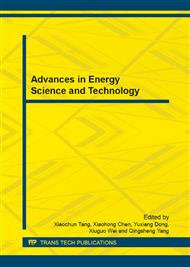p.1413
p.1417
p.1421
p.1425
p.1429
p.1433
p.1439
p.1443
p.1447
Research on Low-Carbon Tourism Development in Qinghai Province of China Based on Stakeholder Theory
Abstract:
Under the background of low-carbon economy, low-carbon tourism has become the response of tourism industry to low-carbon economy. The low-carbon development of eco-tourism areas is the inevitable choice of the tourism industry to achieve sustainable development. The paper uses stakeholder theory to analyze the various stakeholders in the position, function and interest demands in low-carbon tourism development in Qinghai Province of China, and puts forward that the low-carbon tourism development needs to strengthen the leading role of the government and the main role of tourism enterprises, practicing low-carbon tourism consumption patterns as well as establishing the low-carbon life values.
Info:
Periodical:
Pages:
1429-1432
Citation:
Online since:
February 2013
Authors:
Price:
Сopyright:
© 2013 Trans Tech Publications Ltd. All Rights Reserved
Share:
Citation:


